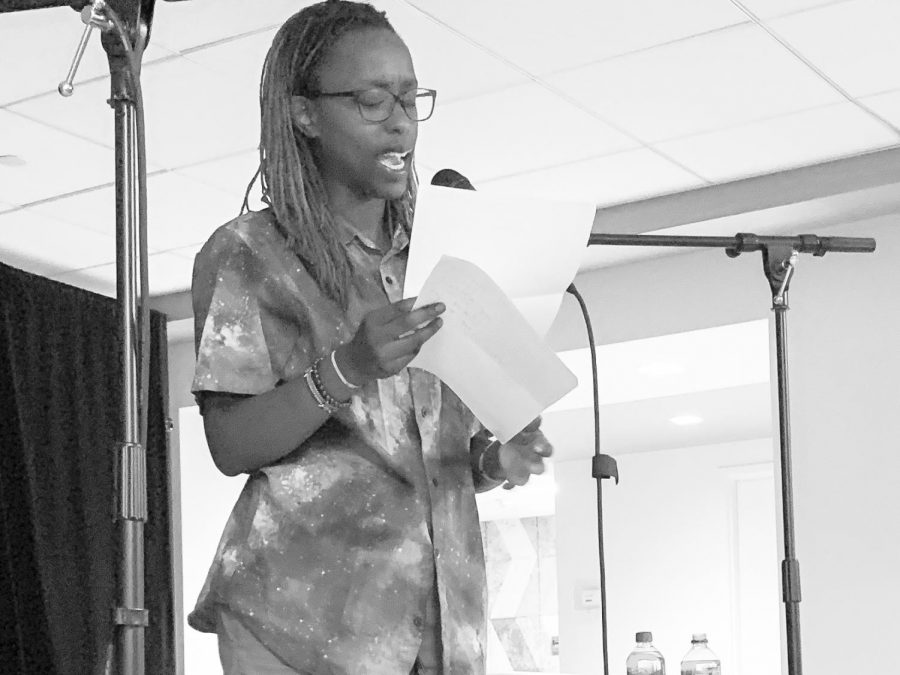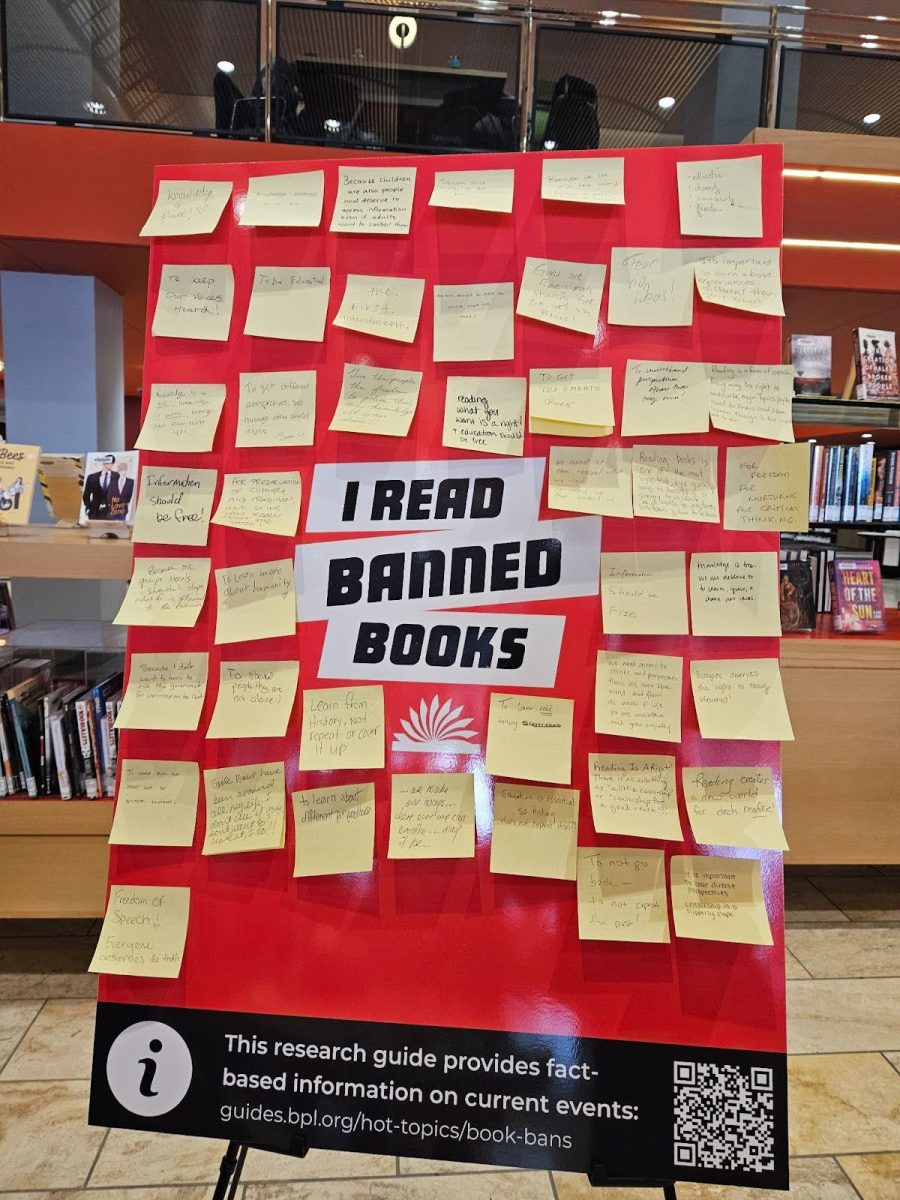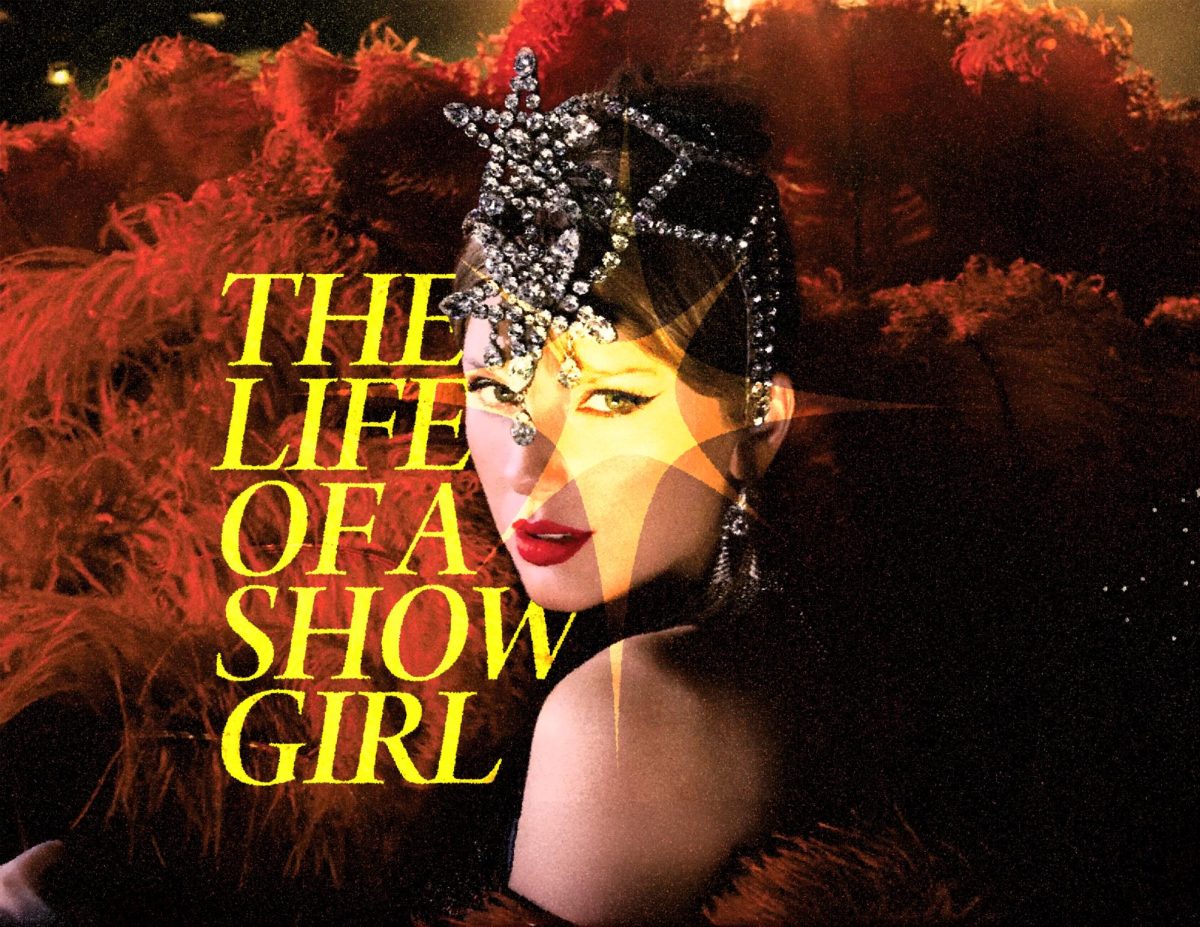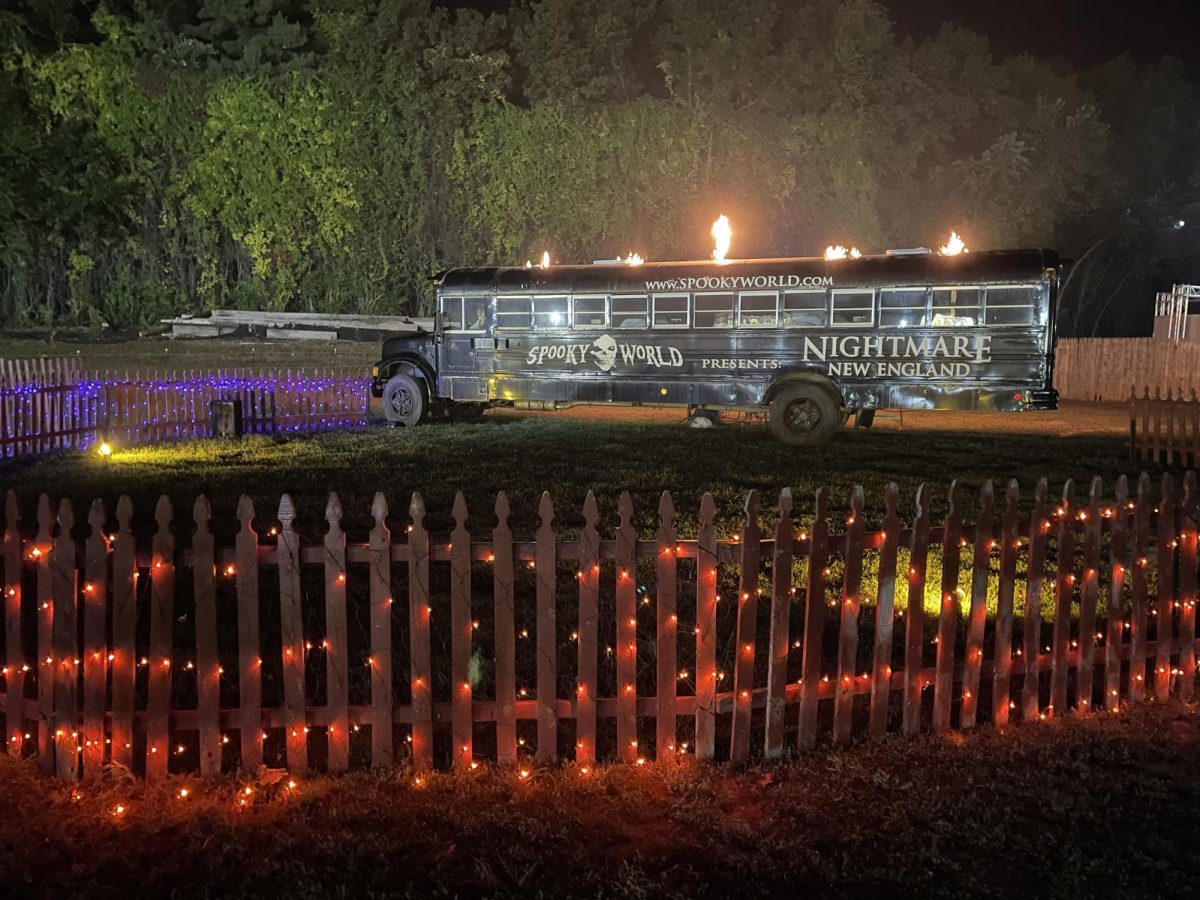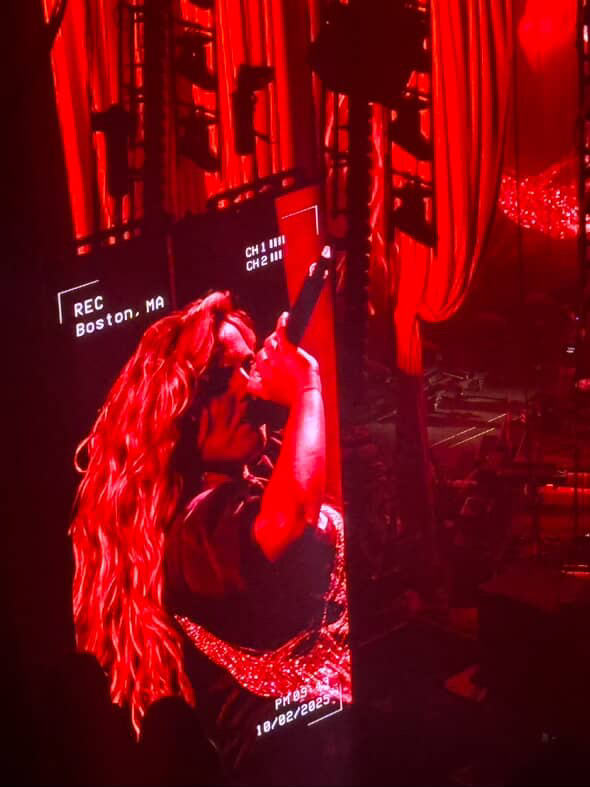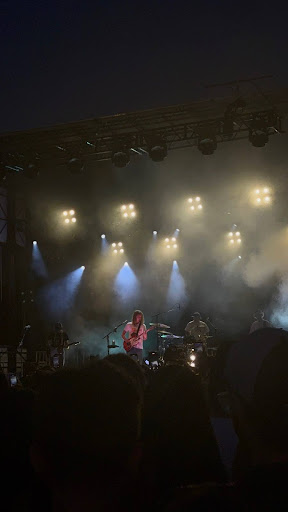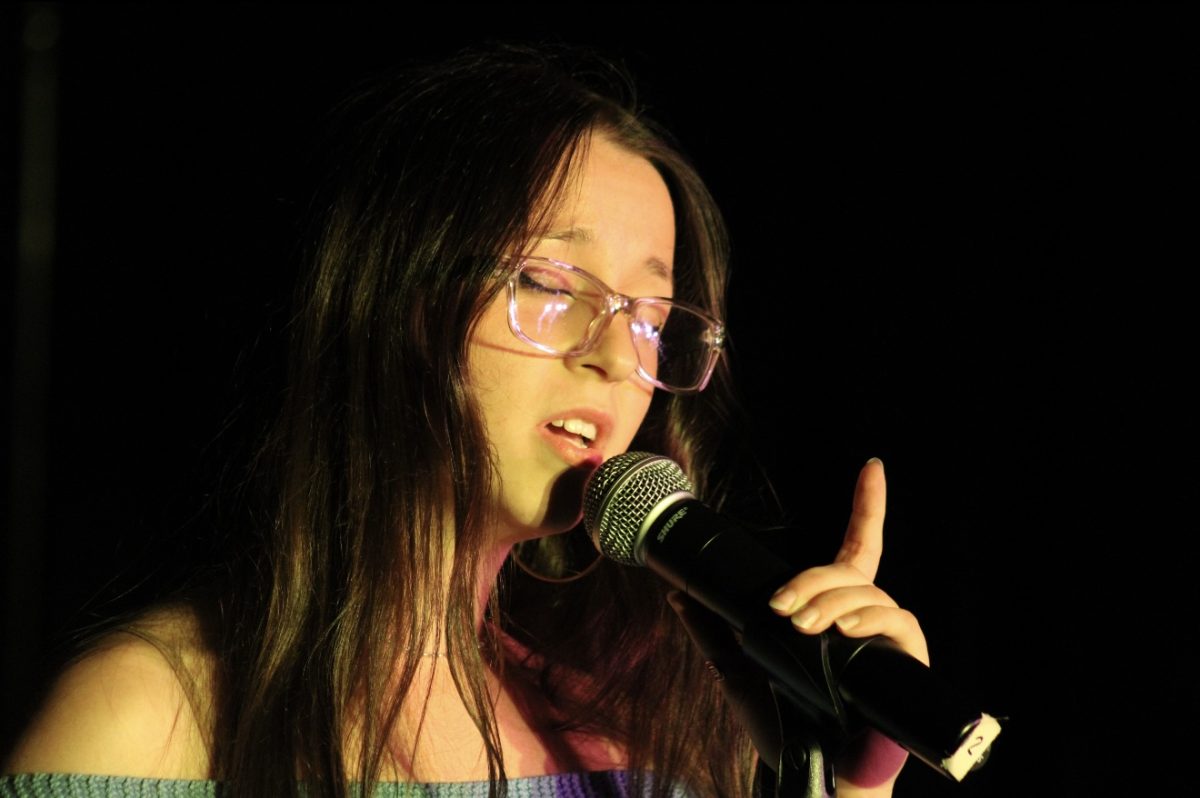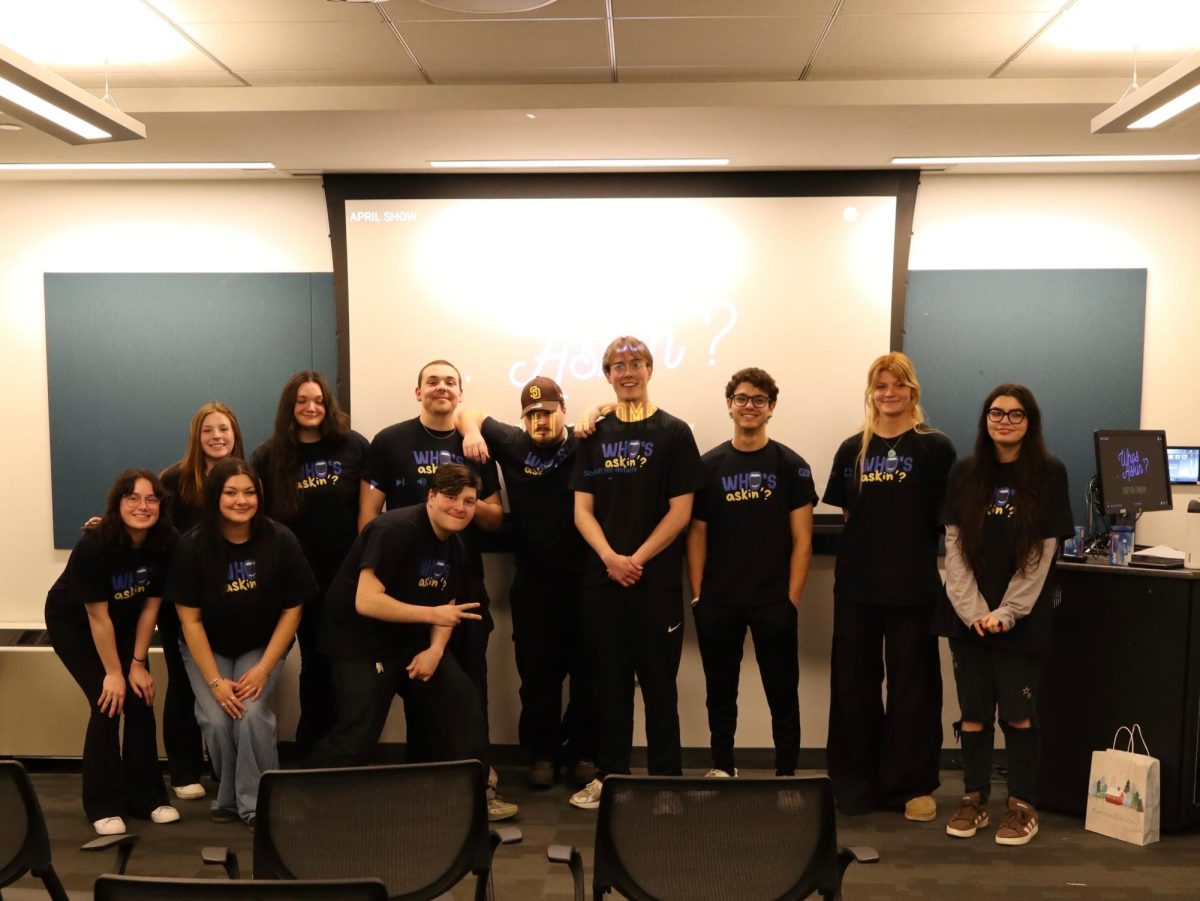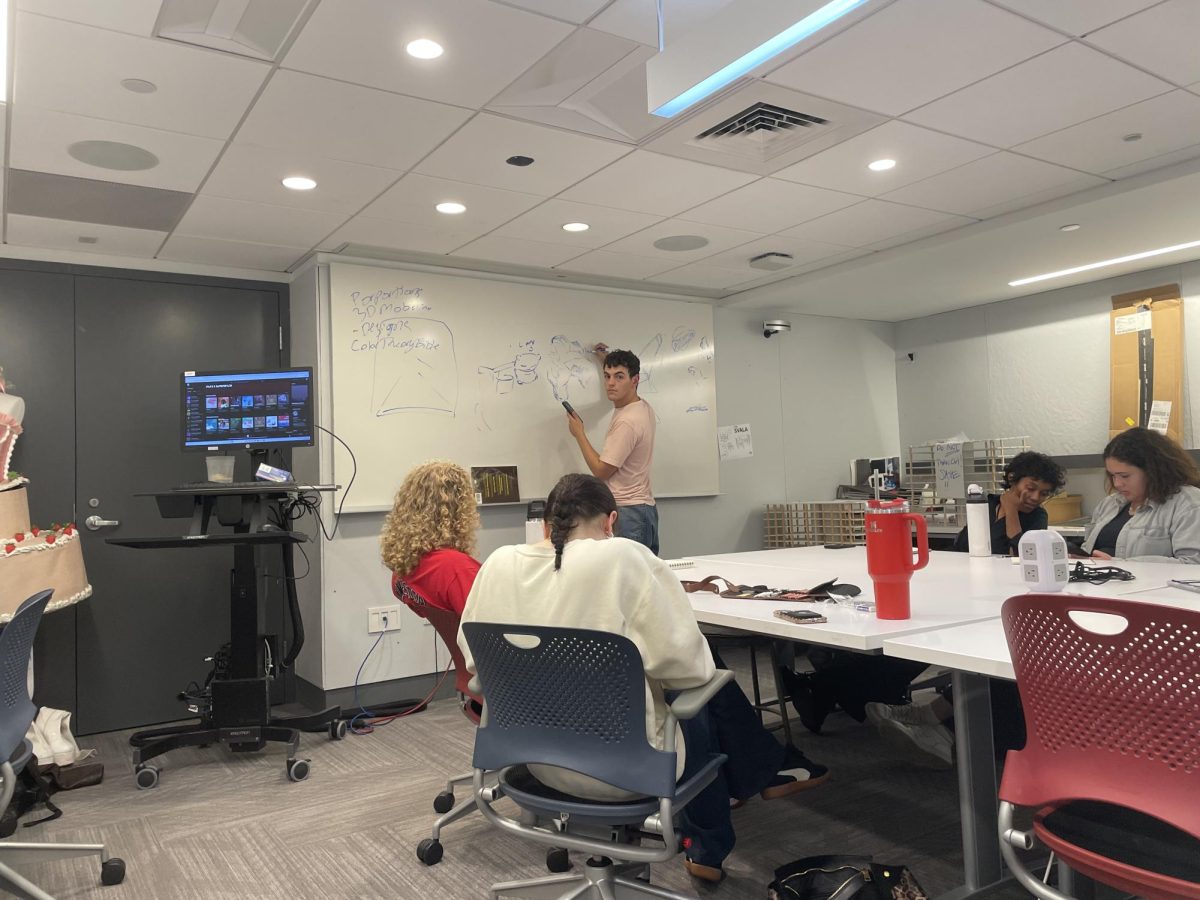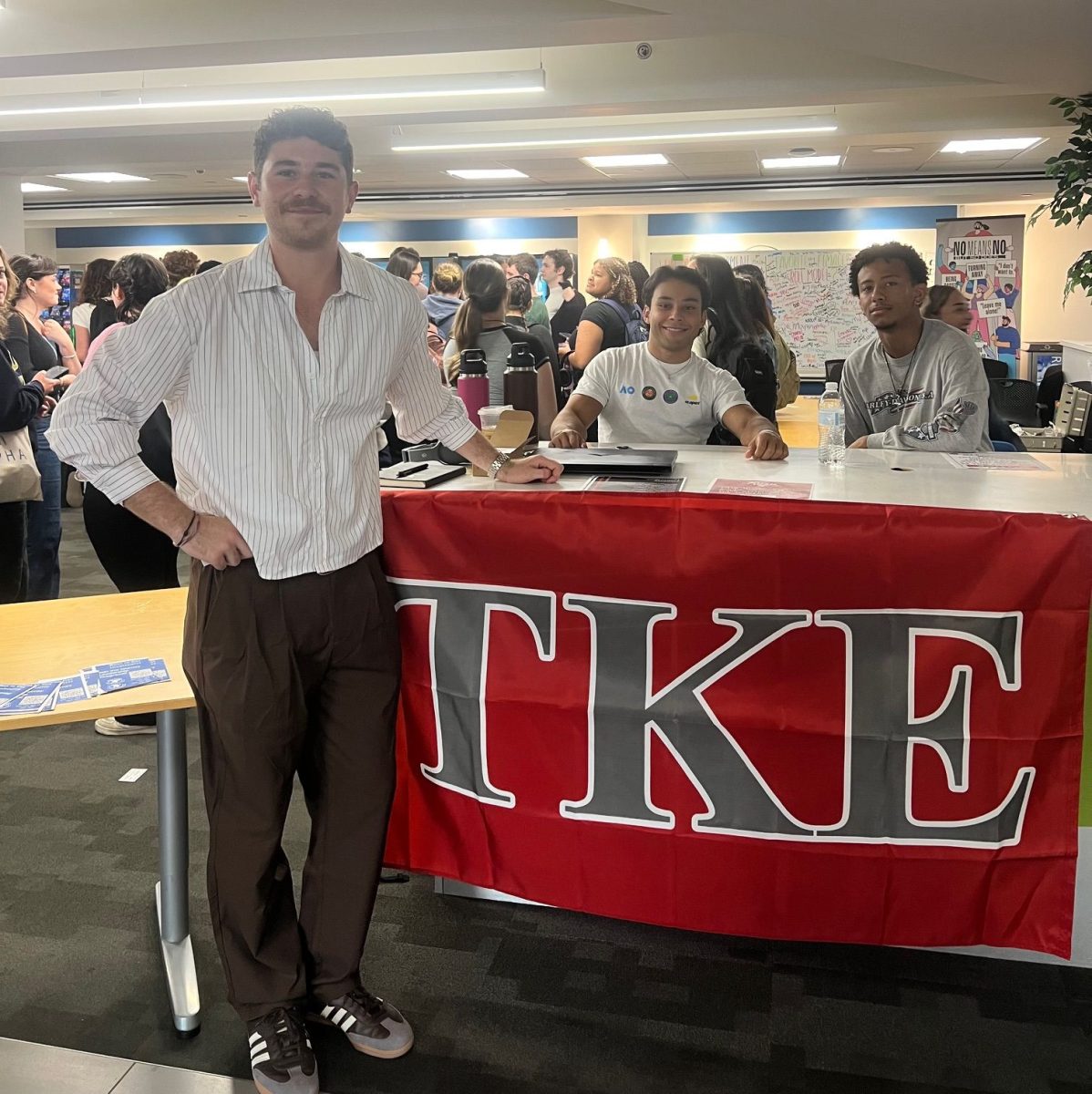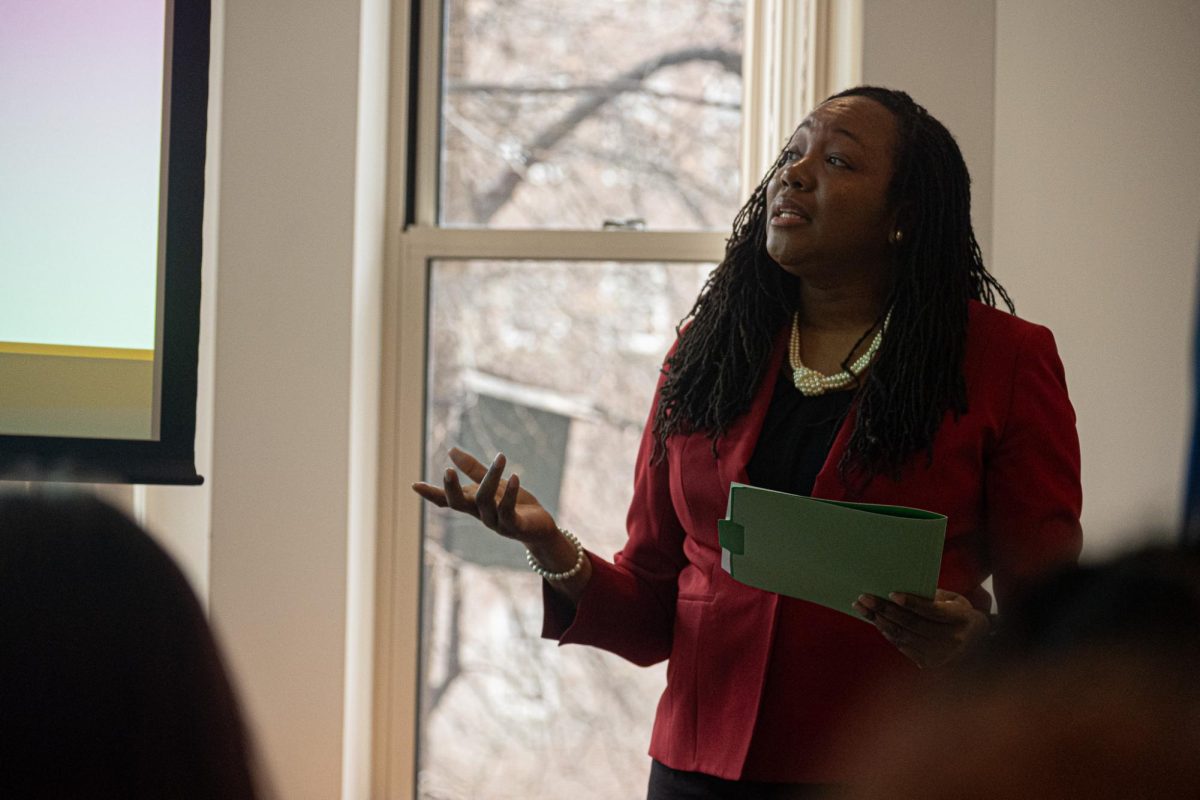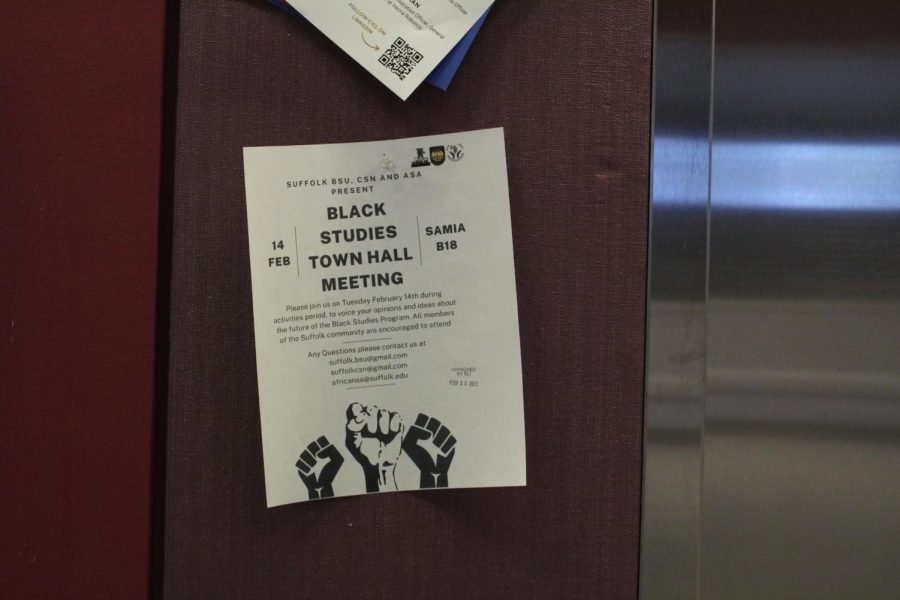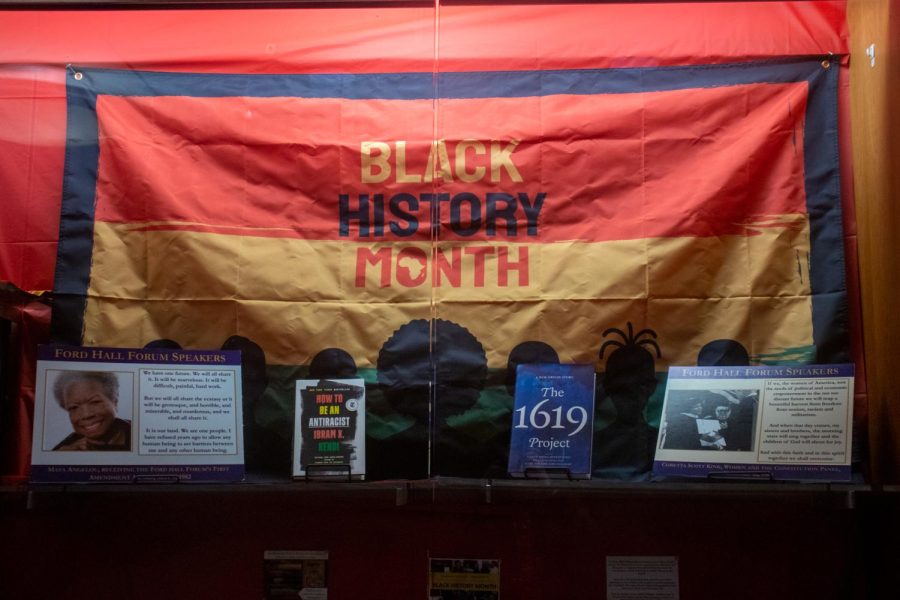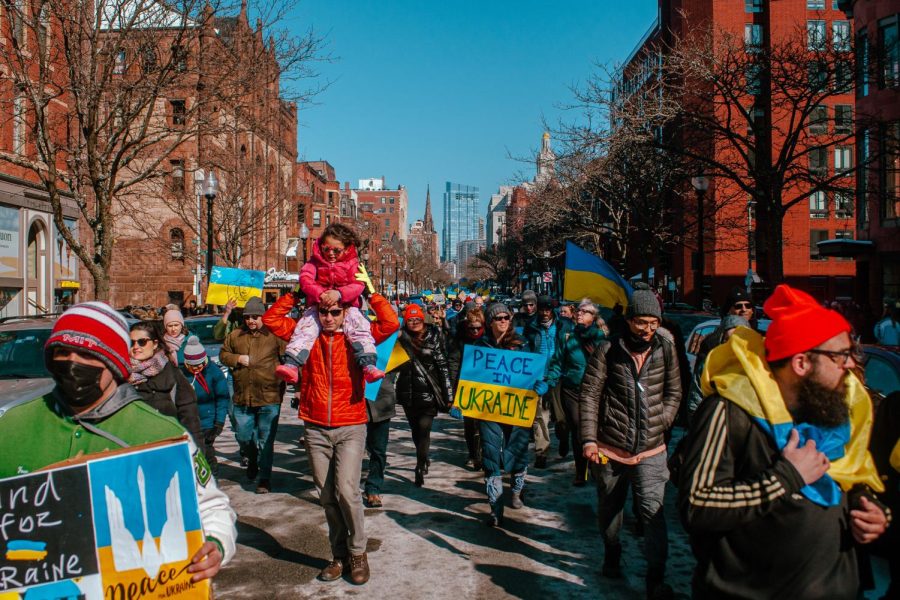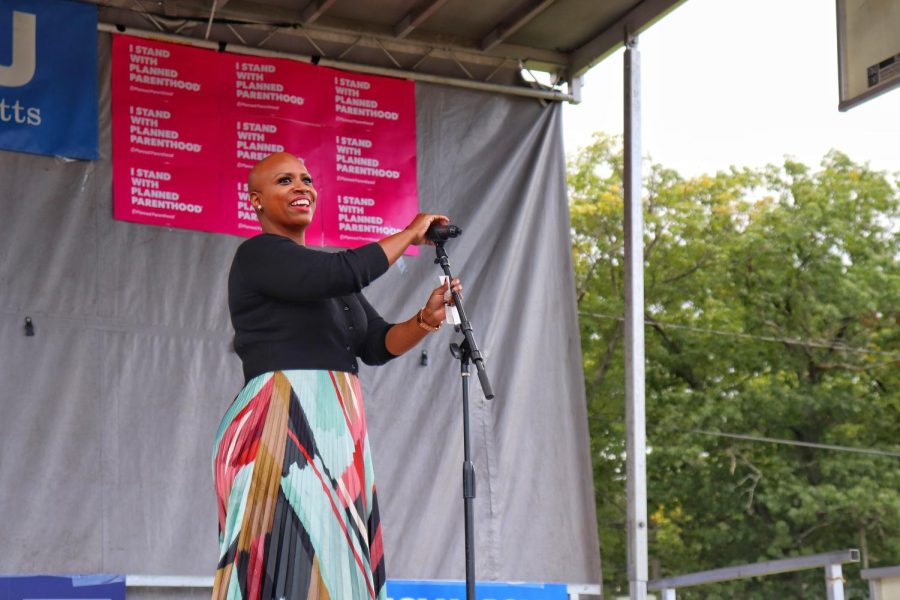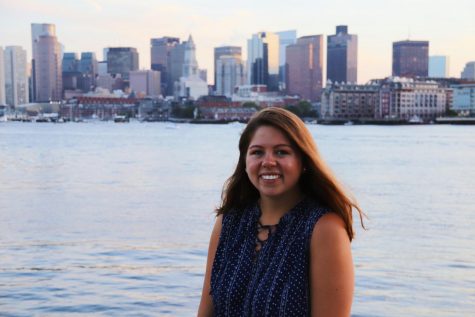In celebration of Black History Month, Program Council (PC), Black Student Union (BSU) and the Center for Student Diversity and Inclusion brought spoken poet and Kenyan immigrant Mwende “FreeQuency” Katwiwa to campus for a performance on Feb. 20.
Last year, FreeQuency, who identifies as they/them, became the Women of the World Poetry Slam Champion and in 2017, they delivered a TedTalk about being a Black mother in America. In addition to being a poet, FreeQuency works in reproductive justice with the group Women With A Vision as a community organizer. The poems FreeQuency recited Thursday night expressed their personal thoughts about Black identity, roots and experiences through powerful language and specific details.
FreeQuency started their performance on the third floor of the Sawyer building by reading poems from their 2015 anthology “Becoming Black” as well as new poems. Their work tackles different themes and incorporates current events. For example, the first piece they recited, “the seven deadly American sins,” is a tribute to Trayvon Martin, the African-American teenager fatally shot in 2012 by George Zimmerman, whose death led to the emergence of the Black Lives Matter Movement.
FreeQuency’s poetry also dives into personal topics, such as their childhood experience moving from Kenya to the United States and growing up as a Black person in this country. The poem “lessons on being an African immigrant in America” lists the ways they had to act and the traits they had to change about themself to blend better into American culture. In the poem, FreeQuency describes having to lose their accent and people joking about their African name, Mwende Kalondu Katwiwa.
The writer explained that most of the inspiration for their poetry stems from events in their personal life.
“I use poetry a lot to just process through what it is I’m going through in my own personal life, to help me answer bigger questions,” said FreeQuency. “It’s easier for me to process my thoughts when I’m writing them because you have to be specific when writing something down rather than just having things race around in your head.”
Another big theme in FreeQuency’s reading was colonialism. One of their poems described the deep faith they had in Christianity as a child, and realizing they could not see themself in God’s image because every depiction of Jesus showed him with pale skin, light hair and blue eyes. The poet later explains how Christianity was spread to Africa through colonization, and although a new religion was brought to the country, God was not.
Between poems, she asked the audience if anyone was born before the year 1994, the year apartheid ended in South Africa.
“We like to talk about these things as if they’re so far in our past, but for at least two of us in here, it was a thing that was actually more of a reality,” said FreeQuency while introducing one of their poems.
Before FreeQuency took the stage, a handful of students performed their own poems. The students’ emotional poetry talked about an array of subjects, such as mental health, harmful relationships, violence and White privilege.
“I think all kinds of writing help with all kinds of emotions. It’s a place that people are a bit more honest than they are in real life because its a judgement free zone when you’re just writing to your notebook,” said FreeQuency. “And then, I think the decision to share it too often lets people know that they’re not alone in those things that they think they’re experiencing alone.”
After FreeQuency’s performance, the event opened into a Q&A session. Students asked for the poet’s advice on how to start writing poetry and how to memorize their work, as well as their writing style, where they find inspiration and expressing emotion through writing.
“I feel like when you should write, you should write about meaning. That’s what I took away. Everything that FreeQuency did tonight had a meaning,” said Vice President of BSU and MC of the event, Mardochee Sylvestre.
The emotional night of literature was a lot for students to digest, but they were able to take away powerful words and ideas.
“It was really cool to see that so many people are actually interested and invested and want to know more about [the poet], and I think [the audience] took away a lot about poetry and how they can get started and how they can be more confident as a poet,” said PC Entertainment Chair Jeanette Marasi.
FreeQuency’s performance at Suffolk is part of her Spring 2019 tour. She will be returning to the area on March 20 for a reading at Lesley University.


